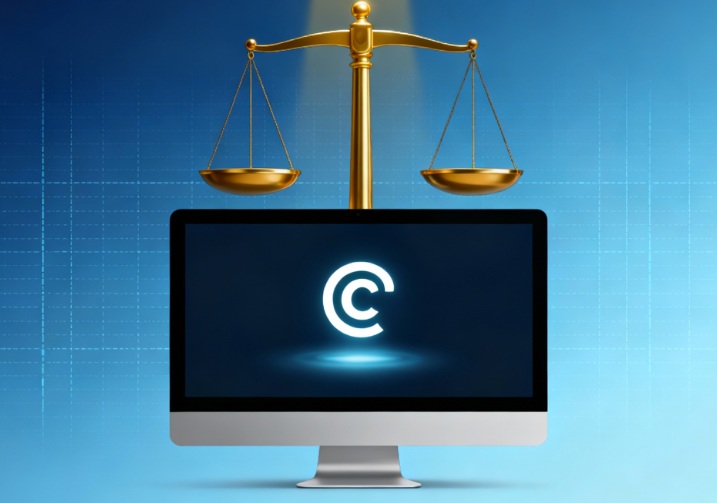Published On: August 31st 2025
Authored By: Komal Gunjal
SNDT Women’s University Mumbai
ABSTRACT
Students of law are empowering change through legal knowledge in worldwide human rights campaigns. This article examines their significant and multidimensional contributions, ranging from engaging in pro bono services and free legal aid programs to participating in internships with global organisations, conducting academic research and study, participating in moot courts, and engaging in E-advocacy. These platforms not only strengthen their legal proficiency but also enable them to promote legal and policy development, address challenges, systemic injustice, and promote legal awareness, both within academic settings and at the community-based levels.
Although encountering substantial obstacles such as scarce resources, institutional limitations, and emotional exhaustion, law students endure as committed advocates. Their distinct combination of legal training, ethical dedication, and fresh idealism positions them as both current participants in social justice and future leaders in the legal framework. The article concludes by emphasising the requirement to enhance clinical legal education, mentorship, cross-border collaboration, equipping future lawyers to uphold justice, equity, and advancing human dignity at the international level.
INTRODUCTION
Law students are more than just observers in the struggle for justice, equity, and dignity; they are proactive members, champions, and future leaders. Scholars pursuing legal education around the world are making significant contributions to the advancement of natural rights both at the local and global levels. Even though they are still learning, their expertise, enthusiasm, and special status as citizens and learners enable them to play a pivotal role in the continuous striving to uphold the personal liberties denied by their right to be heard and to live with dignity. This article evaluates scholars’ significant and strengthening role in safeguarding human rights, addressing the opportunities, obstacles, and practical progress in implementation, and they can make meaningful contributions even before joining professional practice[1].
THE SIGNIFICANCE OF LAW STUDENTS IN THE HUMAN RIGHTS MOVEMENT
In the framework of human rights developments, law students have distinctly meaningful contributions. They are fully equipped to address the injustice with knowledge and a visionary approach because they have a basic understanding of the legal infrastructure and are not restricted by the rules of the legal profession.
This dual viewpoint enables law students to actively participate in grassroots movements, advocate for significant legal reforms, and critically analyse and challenge unfair systems. Their new insights and enthusiasm frequently energize human rights advocacy by bringing novel concepts and methods. Additionally, early engagement in this work can have a big impact on how they develop in their future careers by guiding them toward avenues that are based on social justice, public service, and persistent advocacy. As a new generation of legal scholars, law students possess the capacity to reinterpret what justice means in their respective societies.
PARTICIPATION THROUGH PRO BONO WORK AND LEGAL CLINICS
Clinical programs focusing on human rights are now available at many law schools, where students can work on actual cases while being supervised by faculty. These clinics frequently address topics like criminal justice reform, indigenous rights, gender-based violence, and refugee rights.
In this context, law students:
Perform legal research, write briefs and affidavits, speak with clients, and support advocacy or litigation initiatives. Furthermore, in providing practical training, this ensures legal assistance to the socially excluded communities. For example, legal clinics at Yale and the National Law School of India University have advocates for the rights of asylum seekers in securing refugee status and drive advocacy for systemic policy change at local and global levels[2].
FIELDWORK AND INTERNSHIPS WITH INTERNATIONAL ORGANISATIONS AND NGOS
Placements with NGOS, UN organisations, and the Commission for Human Rights are another strategic approach for law students to get connected in the human rights reform movement. Through these privileges, students can make considerable efforts by carrying out the interviews for legal documentation, reporting on human rights violations, and supporting strategic legal actions. Such as practical explorers empower students to adopt the tools they need to passionately advocate and provide invaluable insights into the practical application of human rights law.
Furthermore, these internships contribute to equipping development of worldwide associations of professionals devoted to advancing fairness and justice. To fully benefit from this possibility, students are encouraged to take active steps towards internship programs like Human Rights Watch or local advocacy groups.
SPREADING KNOWLEDGE AND ENCOURAGING PEERS
Promoting human rights isn’t just done in court. In their academic communities, law students frequently take on the roles of organizers and educators. By setting up seminars, roundtable talks, and awareness campaigns, they:
- Inform people about their legal rights
- Dispel damaging myths
- Establish forums for voices that are underrepresented.
- A culture of rights-based thinking is fostered in law schools and society at large as a result of these actions.
For instance, national campaigns against systemic racism, police brutality, and immigration injustice have been spearheaded by student-led organizations like the BLSA Canada Mentorship Program[3].
3 Black Law Students’ Association of Canada Mentorship Program https://www.blsaccanda.com / mentorship accessed 20 July 2025.
TAKING PART IN RESEARCH AND MOOT COURTS
Students can practice advocating before international bodies through international law moot courts such as the Jessup or the Jean-Pictet Competition. These platforms enhance their comprehension of international humanitarian and human rights law and help them become better advocates. Writing is another way that law students contribute: Academic articles, policy papers, and case studies on human rights concerns. In addition to influencing actual policy, this scholarship can create a public repository of legal knowledge that organizations and activists can utilize.
SOCIAL MEDIA AND DIGITAL ADVOCACY
Law students can use social media in the digital age to raise awareness of violations of human rights. Distribute legal analysis in easily readable formats. Encourage support for petitions and causes. A carefully thought-out Twitter thread, an explainer, or an Instagram carousel can reach thousands of people and have a greater impact on public opinion than conventional legal documents. Although digital advocacy has a significant impact, students should exercise caution when using the internet and be aware of privacy issues, false information, and ethical issues.
LOBBYING IN LAW SCHOOL SYSTEMS
Within their academic institutions, law students can also be effective change agents. They contribute to the expansion of legal education to reflect a range of viewpoints and social realities by advocating for more inclusive curricula that integrate gender studies, critical race theory, and international human rights law. Students can also push for equity in areas like faculty representation, student support programs, and admissions procedures, making law schools more inclusive and accessible. Beyond academics, they can demand divestment from human rights-violating governments or corporations and advocate for ethical investment practices. In addition to holding organizations responsible, this kind of internal advocacy aids in bringing legal education into line with the fundamental principles of justice, equity, and human rights[4].
CASE LAWS AND PRACTICAL IMPACT
The landmark judgments in human rights indicate how strategic legal action, policy research, and community-based advocacy can lead to fundamental changes. Transformative legal decisions have not only expanded human rights jurisprudence but have also served as a practical learning environment for aspiring lawyers.
For example, the Vishaka v. State of Rajasthan (1997) case established the foundation for guidelines on sexual harassment at the workplace in India, emphasising how strategic litigation can implement sustainable institutional reforms. Similarly, People’s Union for Civil Liberties (PUCL) v. Union of India (2001) strengthened the right to food as part of the right to life under Article 21, demonstrating how sustained legal advocacy can reform public welfare policies.
These legal precedents offer a remarkable opportunity for law students to develop their legal skills, engage in critical legal reasoning, and gain an understanding of judicial activism. Students can participate in internships and public legal services programs that advance public interest cases. By teaching them research, drafting, and fact analysis, students can witness firsthand how legal intervention leads to visible improvements in society.
- Sharpening critical legal skills: By understanding judgment, improve analytical
- Knowing litigation strategies: Law scholars learn how well-structured litigation can establish legal principles and initiate policy reform.
- Hands-on training via internships: Engaging in work with organisations like human rights clinics, NGOs, and commissions enables students to participate in practical
- Strengthening compassion and ethics: Judicial Precedent study highlights to students the realities of disadvantaged groups, shaping them into more empathic lawyers[5].
DIFFICULTIES IN HUMAN RIGHTS WORK FOR LAW STUDENTS
Law students have enormous potential to make a difference in the human rights movement, but they also face many obstacles. Their long-term engagement and general well-being may be impacted by burnout or compassion fatigue, which can result from the emotional toll of working on traumatic cases. Resource constraints, such as a lack of funds, time, and institutional support, may further hinder their efforts. Speaking out against influential authorities can result in severe backlash or even personal danger in some areas, making the risks even higher.
Students of law require access to strong oversight, institutional encouragement, and a supportive peer network that shares their determination to protect human rights and justice to deal with difficulties.
FUTURE OF LAW STUDENTS IN HUMAN RIGHTS ADVOCACY
With the extension of worldwide human rights challenges, students of law must consistently participate in worldwide advocacy collaborations, online human rights concerns, and litigation for climate accountability. Coordinating with global associations like Human Rights Watch and civil society organisations can enrich their experience in human rights work.
Legal educational institutes should also introduce practical legal education, moot courts, and experiential learning activities to ensure that students qualify as professionals who are fully equipped to address injustices, speak out powerfully, and uphold fairness and justice worldwide[6].
RECOMMENDATIONS AND THE WAY FORWARD
Although law students play a crucial role in human rights advocacy, institutional and academic reforms must be implemented to boost their impact.
- ENHANCING CLINICAL LEGAL EDUCATION: Legal institutions must include Borden legal aid clinics, human rights units, and practical training. Active and essential participation in such initiatives can align them with principles and their practical implementation.
- ADVISORY SUPPORT FROM A PROFESSIONAL: Expert human rights lawyers, social justice advocates, and judges should mentor students. Interactive seminars and special lectures can assist the students in choosing their right appropriate advocacy strategies.
- PROMOTING RESEARCH AND PUBLICATIONS: Law students should be encouraged to write research papers, advisory briefs, and case commentaries on human rights challenges. Institutional journals can feature student-initiated human rights research.
- BUILDING CONNECTIONS WITH THE GLOBAL RIGHTS OF NETWORKS: Participation in programs conducted by Human Rights Watch, Amnesty International, and the International Commission of Jurists can offer students internships and training programs and global exposure.
- TECH IN HUMAN RIGHTS ADVOCACY: law students can make use of the Digital space, social media activism, and study documented rights abuses and promote awareness.
- COLLABORATIONS WITH GRASSROOTS CAMPAIGNS: Students should also participate in community-based advocacy programs and local activist groups. Practical site experience helps in understanding local justice and legal systems.
MAKING AN IMPRESSION THAT LASTS
Law students can create the biggest difference by reforming attitudes, initiating movements, and fostering the implementation of long-lasting reforms, not always by achieving early courtroom success. Moreover, students can open avenues for the legal community that upholds human dignity by finalising to focus on prioritising justice and fairness early in their professional life.
CONCLUSION
Law students are reformers of the present era as well as future legal professionals. They are on the leading justice movements because of their remarkable union of moral certainty, Vision, and strengthening legal expertise. Their contributions are essential to combating injustice and advancing human rights globally, whether in courtrooms or classrooms, in academic writing, or community organising. Law students can have a direct impact on people’s lives and systems by participating in advocacy, grassroots movements, legal aid, and reform initiatives. Their actions aid in moving the legal profession towards values of accountability, compassion, and equity, and their voices infuse areas that frequently oppose change with new vitality. Meaningful change can be sparked by even modest actions, such as promoting a cause, raising awareness, or challenging the status quo.
It’s not always an easy journey. It can be challenging to deal with the risk of opposition, scarce resources, and the emotional burden of facing injustice. However, these difficulties become development opportunities when accompanied by guidance, camaraderie, and inner strength. Law students, within your reach lies the power to challenge injustice and defend human rights. Your decisions today mark the beginning of the quest for justice. The world needs you in the battle, so speak up and take a stand.
REFERENCES
[1] Komal gunjal, ‘Empowering Change: The Role of Law Students in Advancing Human Rights’ (unpublished, 2025).
[2] Yale Law School, https://law.yale.edu accessed 20 July 2025.
National Law School of India University https://www.nls.ac.in accessed 20 July 2025.
[3] Black Law Students’ Association of Canada Mentorship Program https://www.blsaccanda.com/mentorship accessed 20 July 2025.
[4] Amna A Akbar, ‘Toward a Radical Imagination of Law’ (2018) 93 NYUL Rev 405
https://papers.ssrn.com/sol3/papers.cfm?abstract_id=3061917 accessed 20 July 2025.
[5] Vishaka v. State of Rajasthan AIR 1997 SC 3011 https://indiakanoon.org/doc/1031794/ accessed on 20 July 2025.
[6] 6 Human Rights Watch https://www.hrw.org accessed 20 July 2025.




